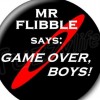Let's Bust a Myth: Article Length Attracts the Search Engines
Alright, so in an effort to improve both traffic and conversions, we should explore whatever myths or curiosities some of us may have. People have often said that an article's length defines quality, at least to the search engines.
Personally, i dont believe any of it. Sure, the more words you have in an article, the "more chances" you have at inserting quality content. But that's not a direct effect. Im referring to the myth that more words ALONE --good wording or poor wording-- have a better chance at seeming "important" just because the article is longer. Thats the question here.
Again, I dont believe this, personally....but we're all here to learn, so if someone could correct me on this one, i'd appreciate it.
=========================================-
-In the past 12 months, has anyone written articles that are over 700, or even 1000 words?
-Have those articles done better than the typical 400 word ones?
- Note: It's best to make these comparisons with articles on the SAME niche. This way we know that perhaps (for example) the longer article didnt just generate more traffic because it had a more profitable niche to begin with.
=========================================-
With that said, i'm possibly about to embark on a "longer titles" journey---just to test the whole thing. But i wanted to know about other people's experiences with this first, as im still undecided.
P.S. Back in 2007, i would write 300 word articles that, to this day, drive both traffic and profit, thats why i dont necessarily believe in "longer is better." But then again, times are different now..............I have a lot of articles around 1000 words and a lot around 500. the longer ones clearly get more traffic, whatever the reason.
In light of the new apparent concern at Google that content providers should aim to satisfy user needs rather than algorithms, I want to make the point that when I search for information, I automatically discount the 300-500 word stuff that is rife everywhere. It is not possible to treat even the smallest subject in any useful depth in such few words.
' It is not possible to treat even the smallest subject in any useful depth in such few words.'
I would have to disagree. There are many styles of article (How-to's in particular) that I would rather read by an author who was able to convey instruction/information concisely. Over an author who waffled on simply to feed the search engines, or who enjoyed the sound of their own voice a little too much.
But with regard to the original question. I've found that it very much depends upon niche/competition, etc. I have many shorter hubs that do far better than those longer. In terms of traffic.I disagree. I recently saved someone over $10,000 in a conversation which contained far less than 300 words.
I don't write hubs under 500 words. I think one of my poetry hubs is 505, that's the lowest I have. Almost all of my hubs are over 1000 words.
I generally don't see less than 600 words as being an article.
I've seen some of the recent sites posting 300-400 words articles, and honestly, I'm not sure I see their value other than the author/owner hoping someone clicks on the many ads surrounding the tiny article.
I really thought this is what google is trying to get away from, but who knows.
Other than that, I have no opinion. It's like the real world, full of different opinions and valuations.
Enjoy whatever you do.Nearly all my hubs that get much traffic are over 1000 words - some as much as 3000. The ones that don't are generally around 500 words, with not much between 500 and 1000.
Having said that, though, it is not a fair comparison. Most of the shorter ones are sales hubs, centered around Amazon, while the longer ones are "how to" hubs about home repair jobs. Not comparable.
I have to say I agree with WriteAngled, though. It is not typically possible to get the information I'm searching for in less than 500 words. If I want something like that it will be from from wikipedia and will be a quick fact, figure, number, definition or something similar.I couldn't say! Most of my articles are around 1000 words or more. Whether Google favors longer hubs or not, I cannot say with any certainty.

Thanks for your thoughts.
On average, how many views per day are you getting for 1,000 word articles? And, about how long did it take to get those views?After 4 months I used to get around 70-80. Now I get around 20-30 and many get nearly zero.
It depends on what you are selling. I find that for face creams a simple 200 words will be sufficient - slap it on and wipe it off plus fluff - whereas for a more complex subject such as toasters I have reached nearly 400!
Madness I know but I like to examine every boring mind numbing facet of product placement, sorry, I mean educate the reader.
Words huh? Overrated of course.I've only got 5 hubs that have generated more than 10,000 views each. Four of them are over 1000 words, and one of them, a much newer hub, has less than 700 words.
10,000 views. If you added all mine together, not that you need to because there's a total on the stats screen, but if you did then I barely break 10,000.
And most of that is to Hubbers who don't exactly put their hands in their pockets.
Almost makes me wonder what the point of spamming the forums 24/7 is?
Oh yeah, might win a Hubnugget thing.Cheer up. When I was six months in, I had 120 hubs and 17,000 views in total. You have just got to keep writing. I've now got 460 odd hubs and almost half a million views in total, yet none of them have ever gone viral or anything.
Panda has set me back six months, that is all.Thanks Izzy, that helps a lot. I keep nearly despairing and then carrying on - it's like a little weekly cycle.
Both long and short articles can rank well. By short I mean 250 words or thereabout. But looking at one aspect of an article will almost certainly draw you to the wrong conclusion. How many links point to it, how users interact with it and the authority of the domain that hosts it are also important. The length of an article on its own tells you nothing.
I don't know how much help I am. Most of my articles here are around 700+ words. 400 words always seemed excessively short to me. My longest article is far and away my best performer annually but I doubt it would matter if I cut the length in half.
Dude, I've got hubs that are over five thousand words. It could be that they aren't in great niches, but they don't really get great traffic.
I cut one short today that I could have EASILY stretched into a five thousand word article. Instead I'm taking the advice of those who seem to know more than me, and I'll create a little niche out of my newest hub, and altogether it will wind up being several hubs of around fifteen hundred to two thousand words.Hmmmmmmmmmmm.............Wellllllllllllllllllll......
"It depends," as pretty much everyone else has said. I tend to write longer hubs, but I don't really count words at all. I just write the article, and I know when it 'feels finished.'
I don't get all that much traffic, short or long. My very best performing hub has over 600 page views, but are we counting traffic alone, or ad-clickers? If the latter, I don't do well at all.
As I've said many times, try though I might, I just don't seem to have the knack for getting the right 'tags' or 'keywords' to show up high enough in the search engine(s) to generate much, if any "organic" traffic, so, since probably 80-90% of my page views are from other Hubbers...my Google earnings are not worth mentioning...and as I've also said before, I doubt I'll live long enough to reach their payout threshhold!
With all the recent discussion about the changes at Google, there is now further confusion with titling. First, I had short, to-the-point titles, then I learned that you (supposedly) do better in the searches with so-called "long-tail" titles...so I tried that...my results were no different. Now, it seems we are being told to use shorter titles!
*****throws up hands in despair and disgust and waves white flag.****MsLizzy, until you work out how to choose the right subjects, it doesn't really matter whether you write short or long articles.
If you're writing to make money, you need to ask yourself one question before you put pen to paper (or finger to keyboard):
"What will people want to buy when they read this article?"
If you can't think of an answer, then it won't be a profitable article.
DNemesis, you can probably answer your own questions about numbers of words by thinking back to whether your HubScore and traffic were substantially higher than now, back when you were getting traffic for the 300-word things (and before all the Panda stuff). Also, were the ads on your articles ads that paid well - or not. Also, keep in mind that what could have contributed to any traffic was SEO know-how (which is the thing Panda has changed, of course).
In answer to your question, most of my Hubs are long (over 1000 words). One that does very well in all ways has over 1300 words. (Of course, I write about stuff that really does require more than a handful of words, so that's one factor.)
In all candor, with a lot of subjects that really would require far more than 500 words in order to offer any substance, a 500-word Hub looks like the work of a high-school kid who was told he needed to come up with a 300-word essay (and who doesn't care a shred about the subject or the reader), and who did what he could to pad the essay until he reached a safe 305 words.
Number of words isn't about having enough words to "make an article seem important". It's about substance.
How many words work best is very much, I think, a matter of the nature of the subject. Not all subjects call for 700 words. I know I sure don't want to look up recipes for a basic vegetable omelettes and find people's life stories about all the omelettes they've made. Still, on an Internet full of 400-word, cookie-cutter, articles that writers all got from the same research, it's pretty hard to offer anything unique in 400/500 words without doing enough research, in enough different places, that your article will have more substance (and more words) than all the rest of them on the same subject.
Still, on an Internet full of 400-word, cookie-cutter, articles that writers all got from the same research, it's pretty hard to offer anything unique in 400/500 words without doing enough research, in enough different places, that your article will have more substance (and more words) than all the rest of them on the same subject.
Having said all that, I don't think the word-length thing is up for debate now, as far as what Google wants goes. They've already made their choice about what they want offered to the reader, and they want substance, something written with the reader in mind, and something that offers something different. 400 or 500 words usually can't offer either those on a lot of subjects. If someone can get his own traffic with 400-word articles - good luck to him, I guess. If he wants to go with the "new standards" - that's something else.Welll...sometimes research is needed, but not always. If, for example, you are writing a comprehensive how-to article based upon your own years of experience (like my hub on camping), research is not required.
That said, I will toss in links to further information, especially on hubs about a particular camping location, as I did with 2 such hubs; that was less "research" than simply finding the URL for the campsite. But, since I had "been there/done that" myself, research was not required.
I stick to the old writer's adage: write what you know. Don't try to write an article on aerospace science without a degree in the field. You can't learn enough even with research to make a sensible article.
I have no idea what works best. I have good ones with over 3,000 words and some that are very short that perform equally. I see no pattern at all.
Ok, I'll be serious - zzz.
A minimum for me is 700 words, apart from a couple of product hubs where I couldn't stretch it out any further. But when I write stuff I enjoy it is for a reader's pleasure... hopefully. So the length is what feels right as was said above.
Some can be short 800 words, some can be longer to my maximum of about 1750. Personally I don't want to read anything longer than that.
Pre Panda sometimes a keyword from the text was picked up - now it seems purely to do with title.
But for me I don't care much about what Google thinks - I want someone who visits me to leave with a good feeling. Maybe one day that method will pay off, but in any case - it's what I want to do.New York Times article on the protesters in Syria - 460-ish words
http://www.nytimes.com/2011/05/09/world … 1&hp#h
Wall Street Journal article on Bin Laden - 625-ish words
http://online.wsj.com/article/SB1000142 … ifestyle_5
Times Magazine article on National Parks - 430-ish words
http://www.time.com/time/magazine/artic … 40,00.html
Length of an article has zero to do with quality. If it only takes 200 words to say something, you should only write 200 words. If it takes 2000+ words to write about something, the focus of the article is probably too broad for an online audience.
Longer online articles often get more traffic simply because they naturally have more related keywords in them, giving you a bigger potential audience to draw on."If it only takes 200 words to say something, you should only write 200 words"
Amen!I recall Nelle Hoxie doing some research with her Hubs. She came to the conclusion that Hubs over 800 words did better, and ultimately (if I recall correctly) she decided 1800 words was the magic number.
Given that Nelle had so many Hubs and was so internet-savvy, I think her research would be pretty thorough.
Personally, I just write till the article's finished, and mine are more usually in the 500 to 1,000 word range.
- BRIAN SLATERposted 14 years ago
0
My best hub only has 400 words, my second best hub as over 2500. Write what you know, make it a quality article and you might have a winner.
Related Discussions
- 40
How much traffic from search engines?
by Arthur Fontes 16 years ago
How much traffic would I expect to receive from search engines? What is an average percentage of traffic coming from search engines?
- 79
Does large Hubs attract more visitors?
by Mahaveer Sanglikar 14 years ago
Does large Hubs attract more visitors than smaller ones?
- 14
Should I register my articles with the Search Engines
by Peter Freeman 16 years ago
I'm still new to thi writing on-line gig. I've heard conflicting views on this so I'd appreciate the thoughts and wisdom of Hubbers.Should I immediately register new articles with the search engines?Looking forward to your views.
- 23
Is a non-featured Hub not available to search?
by Alex Addams 12 years ago
I'm in the process of migrating my content from my blog to HubPages and just transferred an article titled "Top 50 Men's Grooming Blogs for 2014." I just switched this article to HubPages a few moments ago (using a 301 redirect). I'm already on the first page of google for the key term...
- 101
Featured hubs vs non-featured hubs and Google Traffic
by Lena Kovadlo 12 years ago
If a hub is not featured does that mean that it doesn't get any search engine traffic from Google or other search engines?
- 36
Get noticed by search engines
by Anita Hasch 8 years ago
I hope somebody can help. I now have 49 hubs, and yet not one of them are seen by the search engines. When I click on their stats, it says under 'search phrases,' no search terms to add.(list of words that appear commonly in searches that bring visitors to your hub.)It seems that all my hubs need...


























